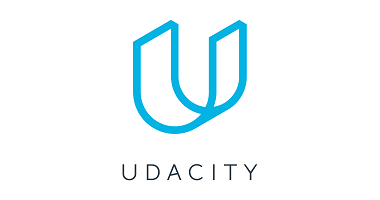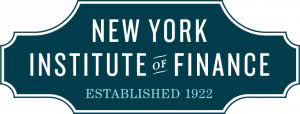Algorithmic trading has been used in one form or another for several decades now. In fact, there have been a couple of famous instances of unintended crashes due the algorithms not performing as intended. But we have come a long way from then and algorithmic trading is now a highly efficient science with billions being poured into its development and perfection. Machine Learning and Artificial Intelligence are the newest technologies being utilized and we are seeing exponential improvements.
Because of these advances, the demand for algorithmic trading experts has been increasing and there really aren’t enough qualified candidates to fill the roles in trading or development. Individual traders are also looking at some form of algorithms and given my own Computer Science and Finance background, I too have been toying with algo trading since around 2009. This is something you need to learn sooner rather than later and here are the best courses to help you do just that.
1. Oxford University’s Algorithmic Trading Programme
Who should take this course?
Traders, investors, business leaders in the investment field, quantitative trading professionals, team leaders and even market related risk and compliance professionals. This is a non-technical course so coding experience is not needed and any programming exercises are optional.
Course Review
If you are interested in algo trading, Oxford is a great brand to have on your CV. The course quality matches the brand name. This is an excellent package that has been well-crafted with industry relevance in mind.
The focus of this course is on the rules of algorithmic trading that underpin successful trading strategies in a variety of scenarios. This is useful both from the perspective of traders who want to learn how to utilize these strategies and investors who wish to evaluate the algo trading prowess of fund managers before investing in them.
You start off with classic and behavioural finance theory but it is much more than what you would normally learn in a finance course. The focus here is specifically on principles that can be applied to algo trading. Hedge funds are a main area of focus with systematic trading opportunities and methodologies being evaluated. Hedge funds are the biggest algorithmic traders out there so it makes sense to have an entire module dedicated to understanding their trading strategies and evaluating them objectively. What makes them tick, what differentiates the high performers from the laggards, the opportunities and challenges and so on.
The last few modules focus on the design of trading systems and algo trading models as well as their evaluation criteria. You will learn to design models, know how to place rules, test the models and evaluate it thoroughly. From simple trend models to systemic models used by funds in the real world – the entire spectrum is covered here. No discussion of the topic would be complete without looking at future trends like robo-advisors, AI, machine learning, fintech and other opportunities in this field.
There is a lot to cover here and I suggest you downland the full brochure to see the full extent of what is on offer. This one is definitely of my personal favourites.
Click here and use code GS-AF-BBD15 for a 15% discount on this course!
Summary
| Time to Complete | 6 weeks, 8-10 hours per week |
| Format | Self-paced, fully online |
| Level | Executive |
2. Artificial Intelligence for Trading from Udacity
Who is it for?
Ideal for quantitative analysts and traders (quants), investment analysts, financial engineers, data analysts in trading and other professionals who need to use advanced computing for market related roles.
Course Review
This is more than just a course. It’s a Nanodegree program that’ll pick you up and get you desk-ready to become an AI coding super trader in a matter of months. Udacity provides a lot of value-added services to students, and this is not just a hands-off undertaking. You do real world projects and receive feedback. You have mentor support for technical issues and also get access to a career coach. This is not just a bunch of online videos being marketed as a course. Mentors answer your technical questions if you have any and career resources like Resume/ LinkedIn profile reviews help turn you into an AI mastermind.
The program heavily uses Python and Mathematical concepts and covers topics like quantitative trading, portfolio optimization, factor investing, sentiment analysis using natural language processing, signal processing, back testing and finally simulating trades. The whole nine yards. A course dedicated to using AI for quantitative trading applications. There is a focus on portfolio optimization, natural language processing for sentiment analysis, using trading signals for your algorithms, back-testing and so on. In short, this course is laser focused on quantitative trading and it does that rather well.
There are a lot of mini projects that you must complete along the way which reinforces the learning rather well. Think of it as a Nanodegree program (which is what its officially called). It’s not just a course, its a more comprehensive and focused experience that requires greater commitment from the learner. However, the extra effort is proportionally rewarded with a superior understanding of the concepts which I would equate to completing a full-time degree on the subject.
For example, your first project is to develop a momentum trading strategy after learning quantitative trading and generating signals from stock data. Then you move on to portfolio optimization, financial securities formed by stocks, including market indices, vanilla ETFs, and Smart Beta ETFs. Crucial trading concepts like factor investing, alpha research, sentiment analysis, and trade simulation is also covered in great detail. There is also a massive section on using natural language processing to generate trading signals! This is just top-notch stuff if you are even mildly interested in trading.
Click here to generate your personalized discount for this course!
Summary
| Time to Complete | About 6 months |
| Format | Self-paced, fully online |
| Level | Intermediate |
3. Investment Management with Python and Machine Learning Specialization from EDHEC
Who is it for?
Asset and Portfolio managers, day traders, professional traders.
Course Review
This is one of the best specializations for trading and asset management using machine learning and data science. The course has a triple focus: giving you the foundational theory and underlying concepts for investments, practical applications and implementation, and lastly doing all of this using Python for AI and ML.
The specialization is divided into four modules or sub-courses. The first course focuses on portfolio construction and analysis with Python. You will learn the underlying science behind this along with the basics of investment philosophy and practical implementations. Next, you move on to advanced portfolio construction using Python. Although Python is used heavily, this is still a beginner friendly course and you will learn what you need to along the way.
The third module focuses on using Python and machine Learning for asset management. Lastly, you will use the same Python and Machine Learning skills for asset management with alternative data sets. The idea is to explore and identify new data that can help in the investment process. With the power of machine learning and AI, we can finally do this.
This specialisation is offered by EDHEC Business Schools which is one of the best in Europe. This specialisation will not only help you learn from the best but should also give you a strong CV point or something to add to your LinkedIn profile.
Summary
| Time to Complete | 80 hours |
| Format | Self-paced, fully online |
| Level | Beginner |
4. Electronic Trading in Financial Markets from the New York Institute of Finance
Who is it for?
Retail traders, professional traders, regulators, financial journalists, trading operations staff and risk managers.
Course Review
NYIF has been trading bankers, traders and regulators for almost a century now. Their experience is reflected in this and other courses and online learning provides you the opportunity to benefit as well right from the comfort of your home.
The course covers fundamentals of the market structure and mechanics, how electronic trading happens, what are the formats and why they are used, how an electronic order book is maintained and used, how exchanges work and what are the inherent limitations of each approach.
Then you move on to more advanced electronic trading topics like the dynamics of trading with large volumes, using benchmark algorithms, and other complex mechanics of automated trading. Fixed income trading (for bonds) is also covered. Lastly, you will learn about the latest FinTech innovations and the opportunities they present for electronic trading.
Summary
| Time to Complete | 12 hours |
| Format | Self-paced, fully online |
| Level | Beginner |
5. Machine Learning and Reinforcement Learning in Finance Specialization from NYU
Who is it for?
Traders, Programmers interested in Machine Learning.
Course Review
This is a specialization designed for the application of machine learning in financial applications like trading, risk management, asset management etc. This is more of a computer science course than a finance course but it contains elements of both. Its offered by the Tandon School of Engineering at NYU so you should expect the engineering heavy focus.
The first module is the into to Machine Learning and should be useful for finance professionals, day traders or students who are just learning about it. Next, we dive into the meat of the topic with Machine Learning approaches, capabilities, solution implementation and performance analysis. You will learn about supervised and unsupervised leaning, reinforcement learning and using Python to design test and implement machine learning algorithms for trading and other applications.
Reinforcement learning is a big topic and you will learn to use it for optimizing your trading portfolio, trading, pricing, risk measurement and management. By the end of this course, you will learn to use reinforcement learning in the real world for high-frequency trading, credit risk lending, and even crypto trading.
Summary
| Time to Complete | 80 hours |
| Format | Self-paced, fully online |
| Level | Intermediate |
6. Trading Strategies in Emerging Markets from ISB
Who is it for?
Individual investors, day traders.
Course Review
Although the title of this course says emerging market, most of the stuff in there is just about trading algorithms which can be applied anywhere. Emerging markets are of course an area of focus with specific strategies but the basic principles are universal.
You start off by covering the basics of trading and asset pricing, understanding the market, trading costs etc. This is a great starting point for beginners and casual traders but things will soon get more interesting.
The next two module cover trading algorithms which is the main thrust of this course. There are seven strategies in total based on momentum, price reversal, quality and persistence of earnings, underlying business growth, behavioural biases and even text analysis of corporate business reports. There is immense focus on testing, bias removal, and iterative improvements to the algorithms.
Lastly, we move on to creating an actual portfolio based on all that we have learned so far. There is also a capstone project to help you deploy these strategies in a real world simulation.
Summary
| Time to Complete | 70 hours |
| Format | Self-paced, fully online |
| Level | Beginner |
7. Machine Learning for Trading from NYIF
Who is it for?
Tech pros who want to learn how to use machine learning for trading. Python proficiency is required for this course.
Course Review
This course for learners who already have an advanced understanding of Python and the libraries used for machine learning like Scikit-Learn, StatsModels, and Pandas. You will essentially be using that knowledge to apply machine learning for trading.
The first module will introduce you to the Google Cloud Platform (which is used for this course) and fundamental trading concepts like trends, returns, stop-loss, volatility, profit optimization, quantitative trading strategies and so on. This is followed by a dive into more advanced topics like pairs trading, momentum trading and other quantitative trading strategies. There is some good stuff in here and it can quite tech heavy.
The last module focuses on reinforcement learning to help create better trading strategies. Neural networks, actors and value based properties, and the actual use of reinforcement learning for a momentum trading strategy is covered here.
Summary
| Time to Complete | 45 hours |
| Format | Self-paced, fully online |
| Level | Intermediate (Python proficiency needed) |


